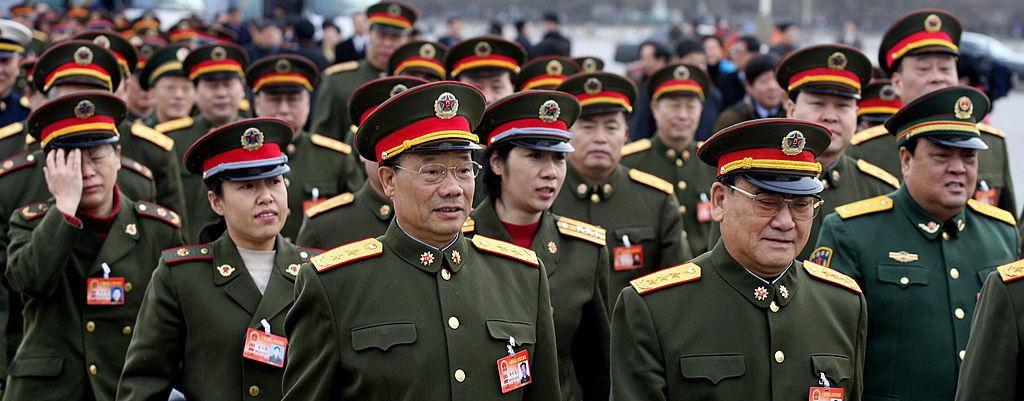
The Chinese government announced the establishment of a new arm of its military, the Information Support Force (ISF), on 19 April. The ISF is tasked with strategic support for network information systems that are under the direct control of the Central Military Commission (CMC). In other words, its main mission is likely to be providing information support for the implementation of integrated operations in each of the theater commands.
The reorganisation addresses overlaps in the previous structure and looks like part of the fight against military corruption.
An editorial in the PLA Daily points out that network information technology is the ‘biggest variable’ in the development of combat capability and that the establishment of the ISF is aimed at enhancing joint combat capability and all-domains operational capability based on network information systems.
The government has also announced that it will dismantle the Strategic Support Force (SSF) and create two new forces—the Aerospace Force (AF) and the Cyberspace Force (CF)—in addition to ISF.
So the SSF has been broken down into three components: the ISF, which provides information support; the CF, which conducts cyber operations; and the AF, which supports and conducts space operations. According to the 2019 Defense White Paper, the SSF was also supposed to be in charge of testing new technology and development of new-type combat forces; it is unclear where those functions now have been allocated. In any case, as a result of the reform, the PLA’s forces now consist of four services—the Army, Navy, Air Force and Rocket Force—and four branches—the ISF, AF, CF and Joint Logistics Support Force.
Xi appointed Bi Yi as commander of the ISF and Li Wei as political commissar. Bi Yi is from the Army and is a former deputy commander of the SSF; Li Wei was a former political commissar of the SSF. Bi Yi served primarily as an Army training officer before his transfer to the SSF July 2023, so he is unlikely to be familiar with information support missions.
The SSF was established at the end of 2015 and did not last 10 years. Xi Jinping’s reorganisation does not indicate a policy change in military development, but rather exposes a problem in organisational management of the armed forces.
Organisational readjustment was probably needed. In the SSF there was a Network Systems Department and a Space Systems Department, with overlapping missions such as space offensive and defensive operations and strategic intelligence. It has also been pointed out that the Information Department of the CMC’s Joint Staff Department also overlapped with the SSF. The latest reorganisation is aimed at minimising duplication, which would also improve warfighting capability.
On the other hand, the reorganisation probably reflects organisational and systemic problems facing the Chinese Communist Party and the People’s Liberation Army. Over the past few years, it has become clear that corruption continues within the PLA, despite repeated exposure. Investigations of Ju Qiansheng, commander of the SSF, and Shang Hong, commander of the Space Systems Department of the SSF, have been reported.
The SSF was broadly involved in informatisation, space assets and even emerging technologies. Meanwhile, China’s military-civil fusion strategy failed to improve transparency.
If Ju is not appointed as the commander of the Cyberspace Force, it will mean that massive corruption has occurred not only in the Rocket Force, as previously reported, but also in the SSF. In a sense, the reorganisation can be seen as an extension of ongoing anti-corruption measures.
Establishment ceremonies for the Aerospace Force and the Cyberspace Force have not been held, nor has their leadership been announced.
Xi Jinping’s administration continues to pursue the goal of strong armed forces as well as informatisation and intelligentisation of the military. The PLA has not changed its view that information dominance will make for superiority in modern warfare. In other words, there has been no major change in the direction of Xi Jinping’s program to strengthen the PLA.
Nevertheless, the reorganisation reflects the traditional difficulty of controlling the military of an authoritarian regime. Xi Jinping is having trouble rooting out corruption in the secretive armed forces. His distrust for them is deepening. This implies that detection of corruption will continue, as well as power struggles among military cadres scrambling to gain his trust.
It is likely that the PLA’s strengthening and its systematic corruption will continue side-by-side.